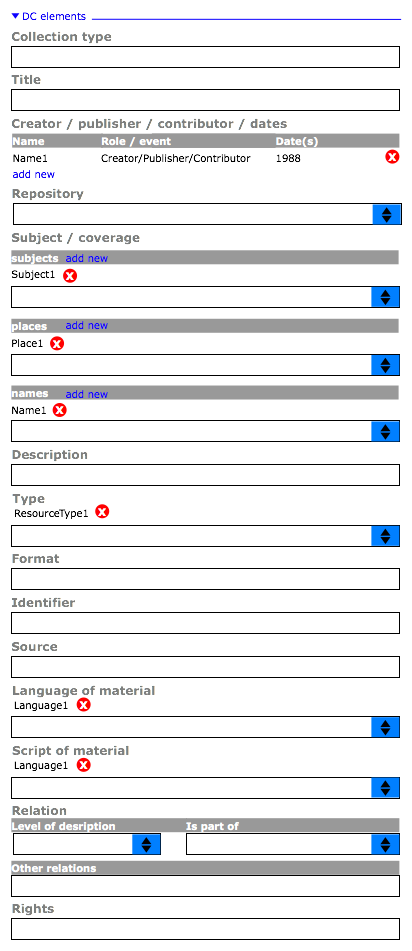Difference between revisions of "Development/Projects/DCB/Templates/DC/Unstructured"
(Migrate basic page content) |
m |
||
| Line 1: | Line 1: | ||
| − | {{#pagetitle:DCB | + | {{#pagetitle:DCB - Simple DC Unstructured template}} |
| − | [[Main Page]] | + | [[Main Page]] > [[Development]] > [[Development/Projects]] > [[Development/Projects/DCB]] > [[Development/Projects/DCB/Templates]] > [[Development/Projects/DCB/Templates/DC]] > Unstructured |
<admonition type="note"> | <admonition type="note"> | ||
Latest revision as of 16:35, 29 July 2015
Main Page > Development > Development/Projects > Development/Projects/DCB > Development/Projects/DCB/Templates > Development/Projects/DCB/Templates/DC > Unstructured
Note
This is historical development documentation that was migrated from a now-defunct wiki. The content was first created on December 12, 2008, and last updated on December 18, 2008. The contents were migrated to the AtoM wiki in July 2015. Some changes have been made to the layout for greater legibility; otherwise the content is unchanged. See the DCB development project landing page for more information: Alouette Toolkit (DCB).
The "unstructured" implementation simply runs all Simple DC elements into one div.
- Two non-DC fields required by Qubit are included (Collection type and Repository -- see Identity area below for rationale).
- All other additional Qubit-required fields are separated into other divs that are the same in all Qubit templates (Control area, Digital object, Storage location).
This presentation of Simple DC is consistent with the DC standard. The main drawbacks are pragmatic:
- Does not manage screen real estate very well.
- In order to fit all elements in one place, data entry fields are small.
- User must scroll through list of elements to get to particular field.
The "structured" approach using collapsible divs offers a more flexible interface, but has the disadvantage of imposing an organization of elements that has no basis in the DC standard itself.
For notes on Qubit implementations of Simple DC elements as fields, see the various "structured" sections:
- Identity area
- Creator / publisher / contributor / dates area
- Description area
- Access and use area (Qualified only)
- Indexing area
- Related resources area


